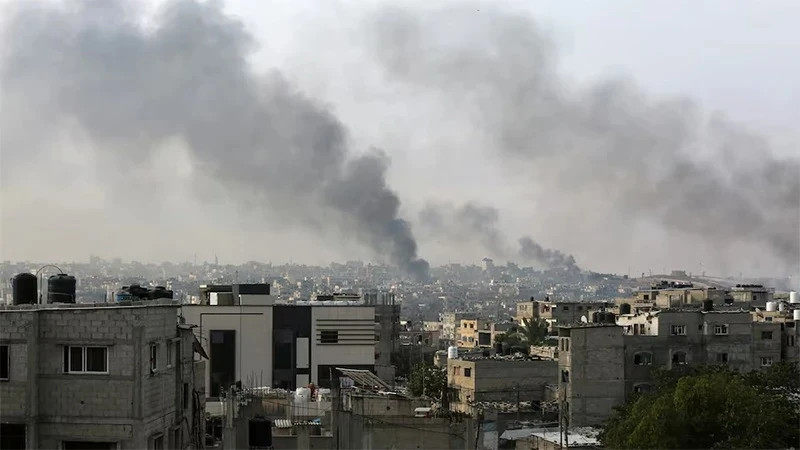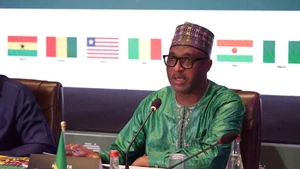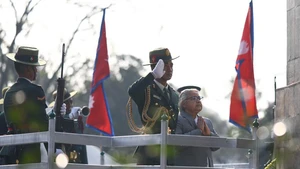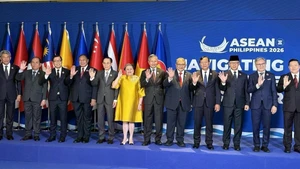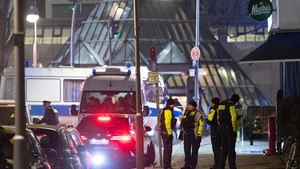This move was welcomed by the international community, adding motivation for the Palestinians to continue their just cause of fighting for legitimate national rights while creating favourable conditions to promote a comprehensive, fair, and equitable solution for the Palestinian issue.
Important decision
Before the abovementioned three European countries recognised the State of Palestine, eight European Union (EU) member states recognised the State of Palestine, namely Slovakia, Bulgaria, Cyprus, Czech Republic, Hungary, Poland, Romania, and Sweden.
Spanish Foreign Minister Jose Manuel Albares emphasised that this action is in accordance with international law and United Nations resolutions. He also called on the international community to support a two-state solution to the Israeli-Palestinian conflict. Spain and Ireland, along with Malta and Slovenia, have announced that they will work towards recognition of the State of Palestine.
Norwegian Prime Minister Jonas Gahr Store stated that the peaceful coexistence of two states is the only political solution for both Israelis and Palestinians.
Irish Prime Minister Simon Harris also confirmed the country's plan to recognise the State of Palestine and emphasised his belief that other countries will make similar moves. He stated clearly that the two-state solution was the only path towards lasting peace and security for Israel and Palestine.
The decision of some European countries to give stronger support to Palestine received applause from the Palestinian Authority (PA), the Hamas movement, and some Arab countries such as Jordan and Saudi Arabia. It was also highly appreciated by many other countries.
Brazilian President Luiz Inacio Lula da Silva praised the decision by Spain, Norway, and Ireland to recognise the State of Palestine — a measure he said would have a positive impact on peace and stability in the region.
President Lula da Silva affirmed that this is a historic decision for two reasons: First, this decision does justice to the claim of an entire country, recognised by more than 140 countries, regarding autonomy. Second, this decision will have a positive impact in supporting efforts towards peace and stability in the region. He emphasised that peace and stability will only come when the existence of an independent Palestinian State is guaranteed.
Polish Foreign Minister Radoslaw Sikorski announced that Warsaw supports the efforts of the EU High Representative on security and foreign policy and other countries, which is the need for a stable long-term solution, cooperation, and the existence of two states. This Eastern European country recognised the declaration of an independent Palestinian State in 1988.
The only way to peace
Europe has long supported the establishment of a Palestinian State, which Israel firmly opposes, while promoting a two-state solution. Although many European countries are important allies and partners of Israel in the fields of finance, trade, and science, they have expressed disappointment with the way Israel has handled tensions with Palestine, escalating the conflict in the Gaza Strip and the West Bank. Europe's sympathetic views and support for Israel after the attack on October 7, 2023, are weakening as fighting continues and the humanitarian situation in Gaza worsens.
The fact that EU member states Ireland and Spain along with Norway — a country closely affiliated with the bloc — have recognised Palestinian statehood is like a sharp opposition to Israel. These three European countries have criticised Israel and supported the cause of the Palestinian, although they have also condemned Hamas and its brutal attack on Israel on October 7, 2023. This increases the rift in relations between Europe and Israel.
If more European countries follow the trend of the above three countries, the EU could become a major counterweight to the US position that Palestinian statehood can only be the result of a negotiated agreement with Israel.
If more European countries follow the trend of the above three countries, the EU could become a major counterweight to the US position that Palestinian statehood can only be the result of a negotiated agreement with Israel.
US President's National Security Advisor Jake Sullivan said the US has seen a growing number of voices, including voices that previously supported Israel, now turning in the other direction. That is cause for concern, because the US does not believe that it contributes to Israel's security or long-term survival.
However, the EU as a bloc has maintained trade and other agreements with Israel. Despite growing calls to sever or significantly limit those agreements, many members of the bloc have yet to take decisive action in expressing opposition to Israel in the conflict in Gaza. Faced with the lack of consensus in views among countries in the bloc, EU High Representative in charge of security and foreign policy Josep Borrell urged member countries in the bloc to find a common stance based on two state solutions.
The above efforts have been promoted in the context that the conflict between Israel and the Hamas movement in Gaza has continued to escalate and the international community has urged for an urgent ceasefire and a lasting solution for peace in the region. The EU has drafted and launched a 10-point plan for a comprehensive, credible solution to the Hamas-Israel conflict. The EU plan outlines a series of steps that could eventually bring peace to the Gaza Strip, establish an independent Palestinian state, normalise relations between Israel and the Arab community, and ensure long-term security in the region.
An important element in the EU's peace roadmap is the preparatory peace conference with the participation of representatives of the EU, US, Egypt, Jordan, Saudi Arabia, the Arab League, and the United Nations. Participants will be in regular contact with Israeli and Palestinian officials at every step and at all times, but the two sides will not initially be required to sit at the negotiating table in person. The Gaza Strip and West Bank will be represented by the Palestinian Authority (PA) and the Palestine Liberation Organization (PLO), instead of Hamas.
The United Nations General Assembly also passed a resolution calling on the Security Council to consider supporting Palestine to become an official member of the United Nations. International efforts have expressed strong support for the two-state solution, considering this to be the only path that can bring comprehensive and lasting peace to the Middle East.
